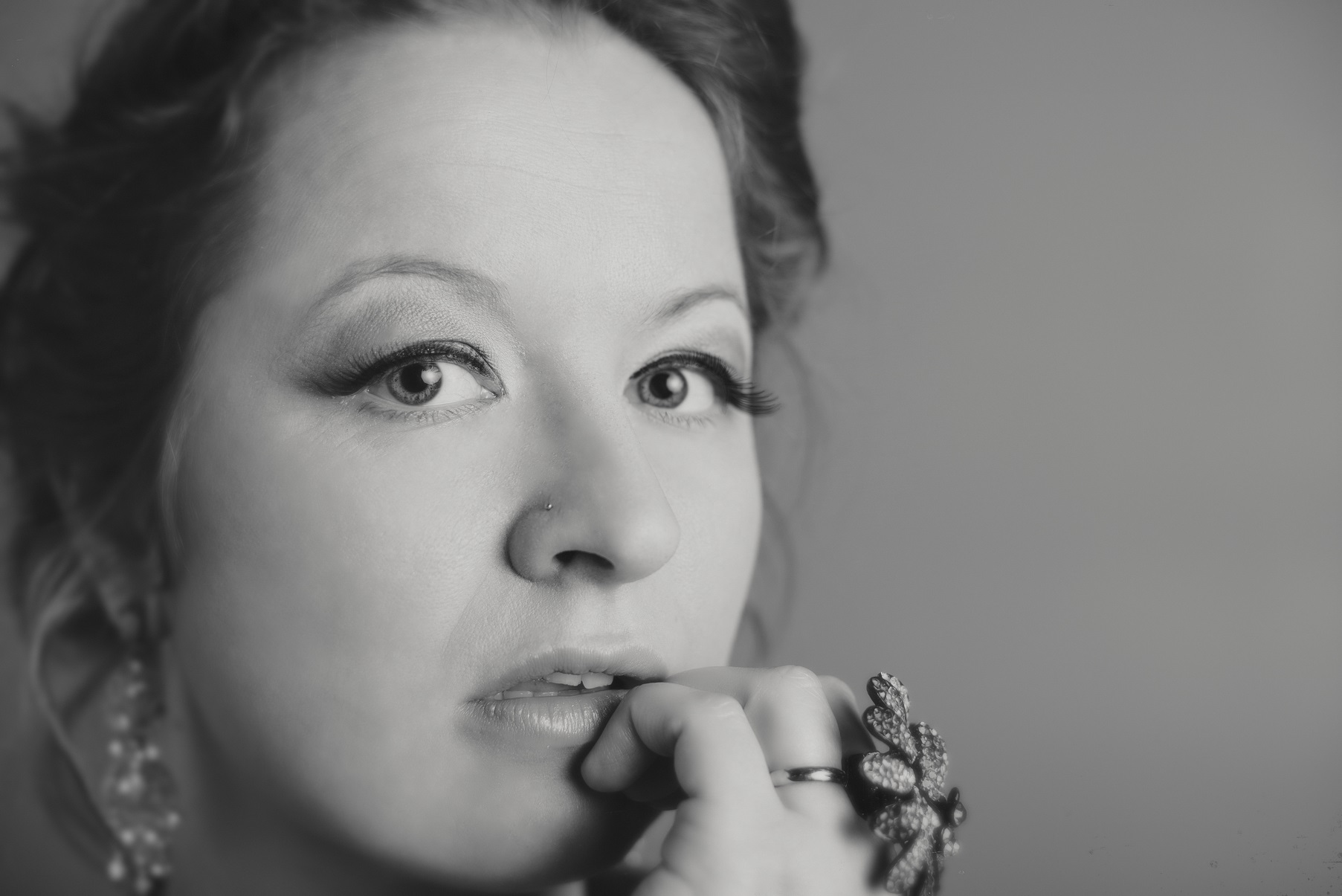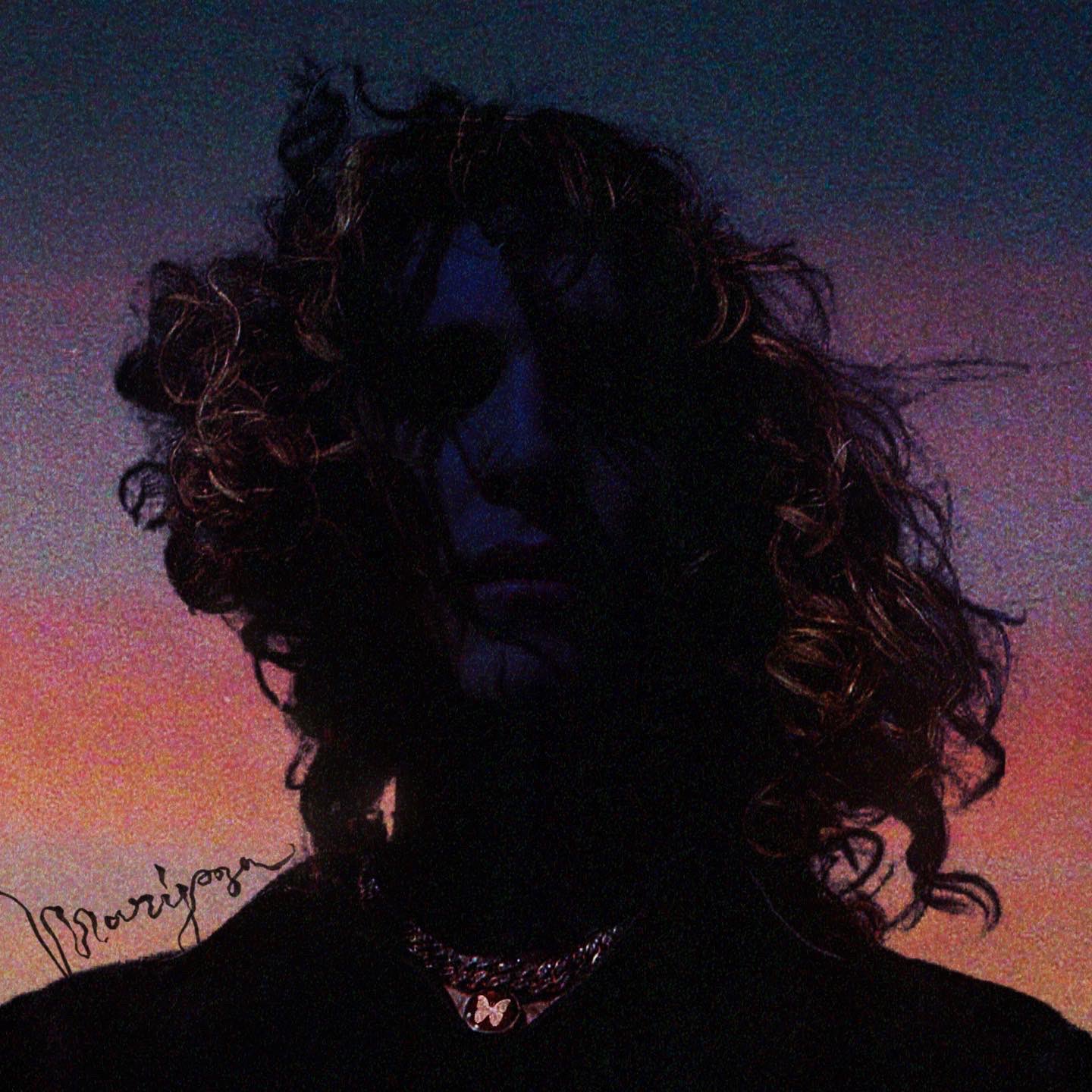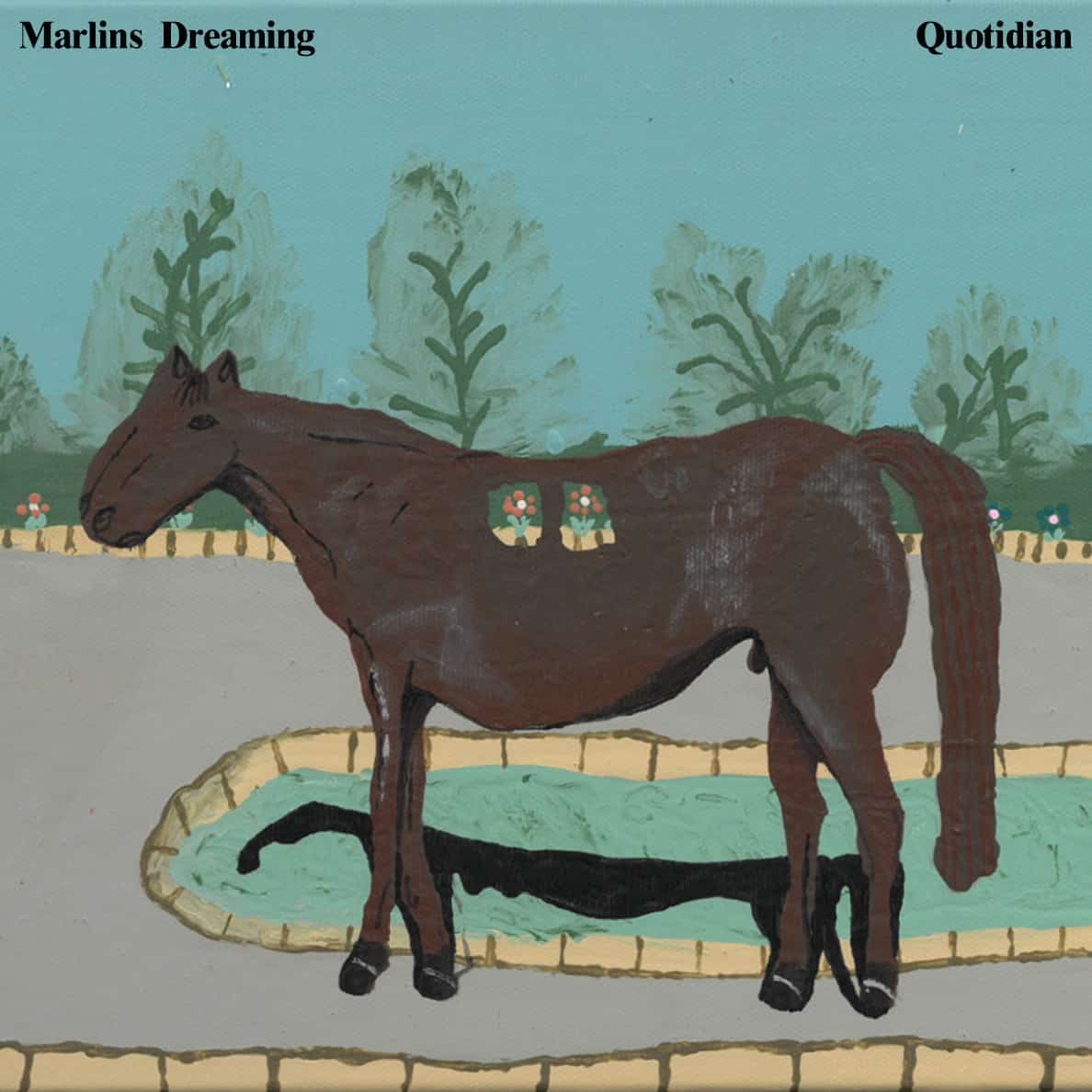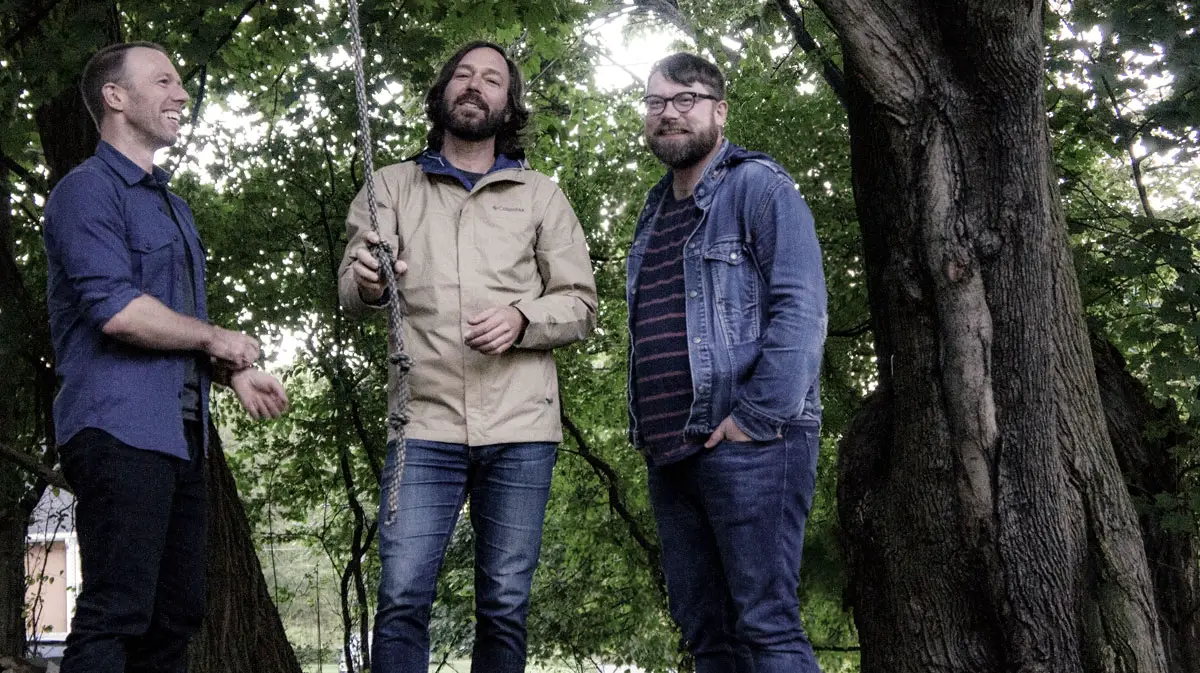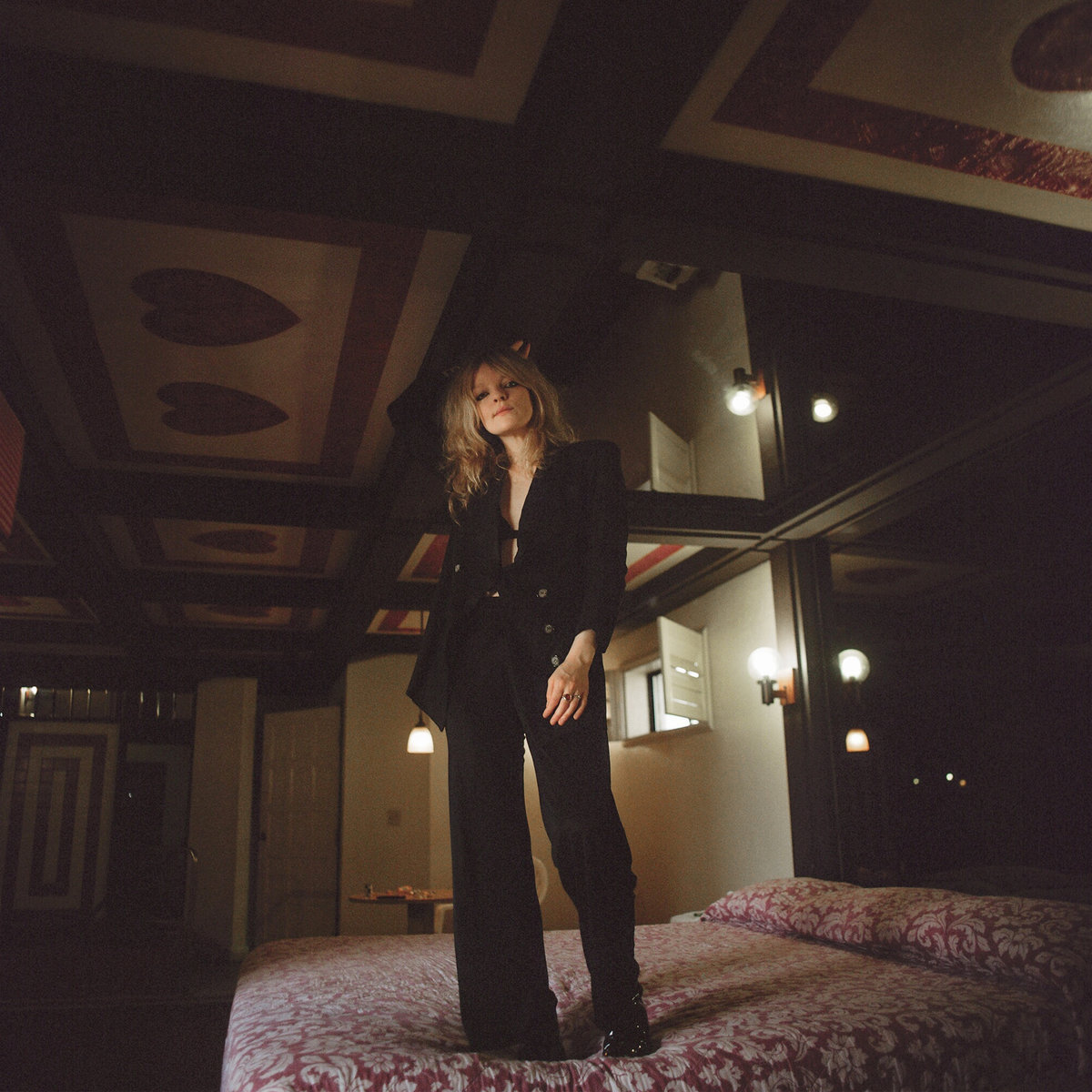In anticipation of their Summer Road Trip tour with REO Speedwagon and Yacht Rock Revue, Train frontman Pat Monahan talks onstage arguments, Spider-Man soundtracks and Hey Soul Squires with Atwood’s Aidan Moyer.
Stream: “Hey, Soul Sister” – Train
Pat Monahan is a busy man.
In the last six weeks alone, he’s recorded a live album at the Royal Albert Hall, performed a mashup set with REO Speedwagon on Good Morning America, and recorded a series of TikToks involving trust falls and long yellow dresses. Pat is the frontman of Train, the Grammy-winning pop powerhouse currently comprised of Jerry Becker, Taylor Locke, Hector Maldonado, and Matt Musty. Their radio hits are indelible – the wistful “Drops of Jupiter,” the ubiquitous “Calling All Angels,” the stream-of-consciousness, ukulele-driven “Hey, Soul Sister.”
Though the group’s lineup has changed several times since their earliest hits – original bassist Charlie Colin passed away this past Ma – they continue to play stadiums, spearhead charitable efforts for Family House and the Prostate Cancer Foundation, and host a bi-annual band cruise, Sail Across the Sun. Monahan himself is a multimedia maven, an early progenitor of the celebrity music podcast (Patcast, founded in 2013) and the co-star/executive producer of the Hallmark movie Christmas in Tahoe (based on the eponymous 2015 Train record).
Train’s latest single, “Long Yellow Dress,” plays to the band’s tried-and-true strengths, a breezy summer bop that began as a dream. Envisioning an elusive someone who’s just out of reach, over a bouncy acoustic guitar and triangle rhythm, Monahan pleads:
I know that I’m free without ya
But something ’bout it, something ’bout it’s wrong
I had another dream about ya
Oh, your hair, and you were wearing
That long yellow dress, the one I loved the best
You could almost see right through
That long yellow dress, good Lord, I must confess
Don’t know what I’m bound to do
An infectious stacked harmony vocal rings over a ‘70s-tinged chorus to round out the lovelorn daydream:
Free (free)
I thought that I would be my best
I see (see)
Now I’d rather be inside that dream, I guess
Monahan’s knack for songcraft has caught the attention of both Taylor Swift and the late Tina Turner. His melodies are as infectious as his lyrics are eclectic; details like “she checks out Mozart while she does Tae-Bo, reminds me that there’s room to grow” (“Drops of Jupiter”), “can you imagine no love, pride, deep fried chicken” (also “Drops of Jupiter”), and “she’ll think I’m Superman, not super minivan, how could you leave on Yom Kippur?” (“50 Ways to Say Goodbye”) are taken for granted but paint a vivid slice of life that hits on something indelible. With Train’s success comes a requisite dose of pop culture chiding, including an SNL skit where Train, Maroon 5, Jason Mraz, and John Mayer threaten each other with lyrical violence at a bar, and a TikTok trend of profane freestyles rapped over the choruses of their greatest hits.
Yet over the course of a Zoom chat with Monahan, it became clear that he takes it all in stride; Train is, after all, a “romantic comedy.” Below is our conversation, slightly edited for clarity.
— —
:: purchase Train tour tickets here ::
:: connect with Train here ::
Stream: “Long Yellow Dress” – Train
A CONVERSATION WITH TRAIN

Atwood Magazine: So I was really happy to hear that on the British leg of your tour, Ilsey was the opening act, because the first person I ever interviewed was Laurence Juber, who was in Wings with McCartney. That's Ilsey’s dad, and he's very proud of everything she's done! My first question is about your live album, and you've been doing this for a long time, and I'm sure you have a ritual to prepare for gigs, but when you think of a venue as legendary as the Royal Albert Hall, and you know that you're going to be taping it, is the prep for that any different than your usual prep, or do you just kind of ‘lock in’ like you usually do?
Pat Monahan: That’s an excellent question, and I got to meet Ilsey’s father at the Royal Albert Hall that evening. So, here’s the problem with that particular live album and my preparation. I was so jet-lagged, because I live on the West Coast, and after three or four days in the UK, I was out of it, and we had to be on morning television the same morning as the Royal Albert Hall. So, we did morning television, came back, did a sound check, ran through camera blocking and all that stuff, and the next thing I know, somebody’s waking me up to go on stage, and this hasn’t happened to me in 30 years.
I’ve never fallen asleep before a show, and I think it might have been the best thing for me, because it’s pretty nerve-wracking when you know the history of Royal Albert Hall, or the Fillmore in San Francisco, and places like that, that are historic, but also your favorite artists have recorded there, or played there, or whatever the inspiring story might be, but having fallen asleep, and then having five minutes before I went on stage might have been the best thing that happened to me, so that I didn’t get all nervy.
Yeah, you just dive right in. That's always a ‘leap before you look.’ So, this summer, you're being joined by REO Speedwagon, a very ‘FM classic’ act, and as your songs are in circulation for a certain amount of time, you grow up listening to a band like that, and then your own songs kind of join that stable, in rotation with REO Speedwagon and all those classic songs. You know, growing up and (then) writing the songs, were you ever thinking that far ahead into the future, or is (‘classic’ radio play) just kind of like a nice consequence?
Pat Monahan: Yeah, I mean, that’s an interesting question. I’ve always feared the term ‘heritage band.’ I don’t think it’s a very kind thing for someone to say, but I get it, because I say it, you know, I just don’t say it to the artists. And when I met Kevin, and I know I’ve met the guys from Def Leppard and all these other bands that are considered ‘heritage bands’ now, they’re still selling a shit ton of tickets, and they’re still playing songs that were so massive and so inspiring to hundreds of thousands of people, if not millions of people, and so there’s nothing to be ashamed of.
I feel like when we had the opportunity to work with REO Speedwagon, I had met Kevin a few times at some charity events, and he’s such a lovely guy that I thought, if this is what it’s like to be in that world, then I’m cool with that world, because these are good people that have great songs, I’ll never be ready to be in a “heritage act,” because I want to continue to make music that is relevant, but I’m okay with being in every compartmentalized place that good music comes out of, whether it’s this compartment, or, you know, a new Americana record that I’ll be working on next, and this live album that, you know, maybe 20 people will hear, but whatever it is that I need to do to be heard and relevant, like, it’s kind of my job, so I’m happy with the outcome.
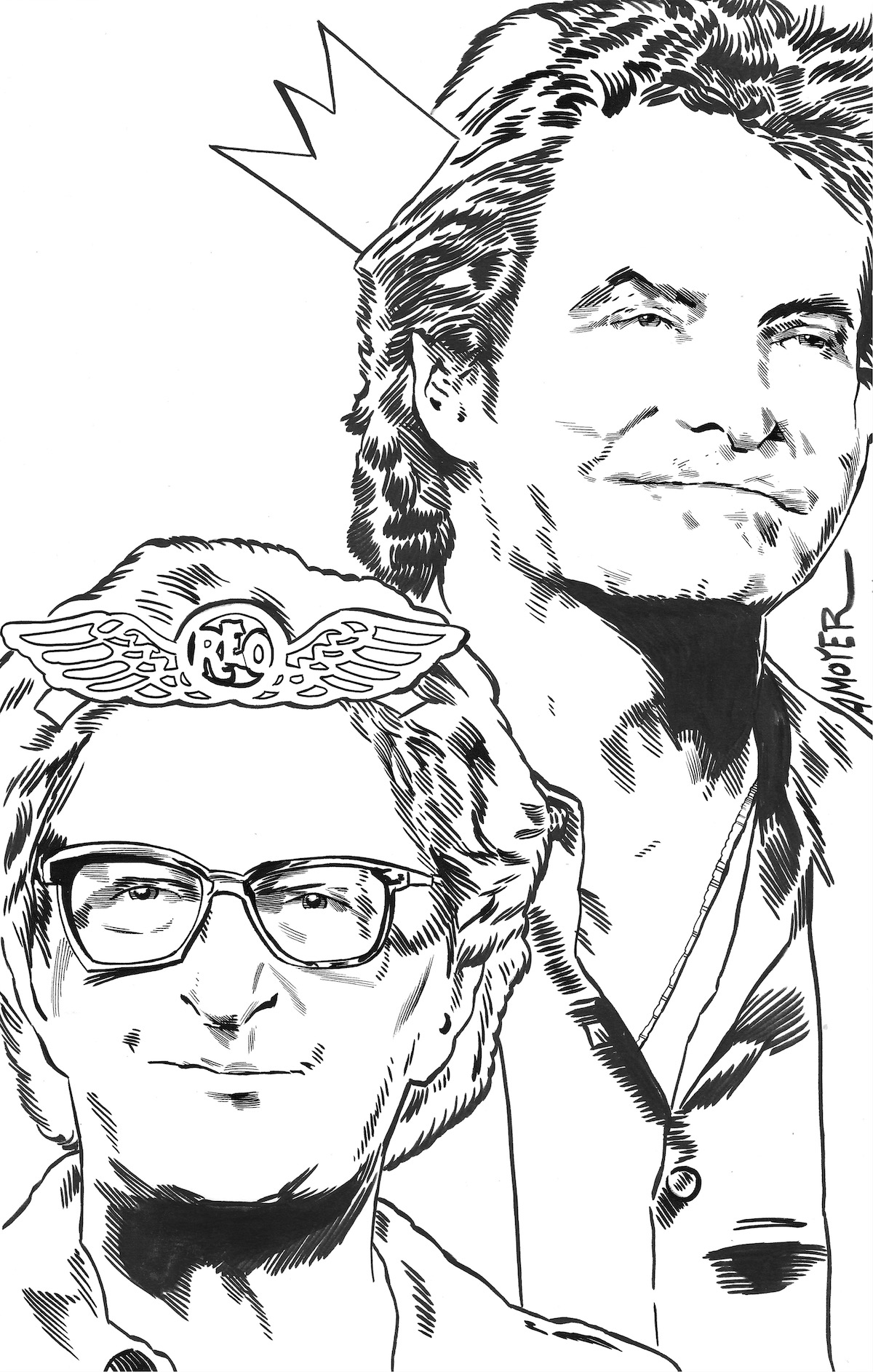
Yeah, a good song is an evergreen, whatever label, you know. It's like, it's a post-genre thing now, there's no need to label stuff.
But speaking of contemporary material, on your latest single, “Long Yellow Dress,” it seems like you draw a lot from dreamlike imagery… through a series of songs, a lot of the lyrics end up being very surreal, and they really stick in your head. There's couplets that have been rattling around my head for 20 years. What's the process from something showing up in a dream, to being siphoned into something that's radio-friendly or pop-friendly? How does it evolve straight from your head onto the record?
Pat Monahan: That’s a good question that I don’t really have an answer to. Like, when I wrote Drops of Jupiter, we were under an enormous amount of pressure to finish an album that Columbia Records felt like didn’t have a single on it. We sat on this album for months, and it was very frustrating because as we’d write songs, they were probably worse than the ones that were on the album.
My mother had passed away, and I fell asleep one night, I might have been sleeping for 10 minutes, and I woke up with the entire song in my head. So I wrote the whole thing, sang the melody in a Dictaphone, and the next day demoed it with a friend. ‘Long Yellow Dress” is more of a dream I had that I related to later because really the way the song started was I sent two guys in my band, me and an iPhone going [beatboxed melody] and they took it and made it into a track. And so I just used a previous night’s dream as a way to start it out with seeing a woman in a yellow dress and trying to find her throughout the rest of my dream, which I hope was my wife. [laughs] At least I tell her it was, you know what I mean?
Yeah, that sounds like a good call.
Pat Monahan: [laughs] It sounds like a good call!
So I've been following you guys on TikTok, and recently artists kind of have to reach out and have a pretty good sense of humor about marketing and their music and such. Another example that I can think of is in Philadelphia there's a local musician named Pat Finnerty, and he won a guitar that you guys signed to promote “Hey, Soul Sister,” and it's become this cult object. It's called the Hey Soul Squire.
Pat Monahan: [laughs]
But see, I'm glad to hear that you're laughing about that.
Pat Monahan: That’s so great. You don’t mind me writing that down and stealing that, right? Hey Soul Squire?
Yeah, no, please do. I'm sure that the guy will get a kick out of hearing that.
Pat Monahan: That’s amazing.
And then people have done freestyles, Trap freestyles over your songs and to say that the lyrics have been ludicrous, that's an understatement. So bearing all that in mind, how does your sense of humor factor into how you present the music and your stage presence?
Pat Monahan: I don’t know why, I was the last of seven kids and laughter was a way of survival, so maybe I just continue with that. But my [bandmates] will ‘talk music’ and I don’t give two shits, but if they say one funny thing, I’m in. And that’s just the way I’ve always been. Like, I find funny people to be interesting. My father would always say, “if you’re not the smartest or the funniest, maybe you should sit this one out.” You know what I mean? And I always took that to heart.
Comedy’s always been part of what I do, like writing-wise and performance-wise, not in a schticky stand-up comedian way, but I just don’t take myself that serious because I don’t think it’s who I’d want to be or who I’d want to watch on stage as a guy that’s, you know, got himself up his own behind. So it’s always been important. This new TikTok trend is right up my alley because I don’t know much about how to do TikTok, so someone helps us come up with ideas, and then we do 25 of them and maybe three of them are great.
So the more humor, the better because we’ve always tried to be funny. Maybe we’re not funny, but we always try. Like, some of my best friends are comedians, you know, Nick Swartzen and George Lopez, and, you know, there’s a long list of… Ken Jeong’s a very close friend of mine, because they’re funny and they’re smart.
Yeah, I mean, self-seriousness, it'll always kill the vibe on stage, dead in the water.
Pat Monahan: Yeah. However, I will say that watching a band fight on stage or [throwing] dirty looks at each other and [calling] each other terrible things is also quite entertaining.
The Eagles in the documentary History of the Eagles, you hear that, like, “I'm gonna kick your ass,” and that's...
Pat Monahan: Yeah, you can never get enough of that. I was always told that Queens… Was it Queens of the Stone Age? That they don’t like each other. I’ve never seen them act it out, but that’s an interesting concept, and, you know, like, I’d love to see Oasis. That would be my biggest fulfillment right now in live music.
Yeah, Ray and Dave Davies seem like they patched it up, so hopefully the Gallagher brothers can patch it up.
Pat Monahan: I mean, you know, honestly, it’s been said for 15 years now that if they got back together, they would continue to be the biggest band in the world.
Great songs! I've allotted myself one nerdy question, and I have a drawing to supplement it. So I'm a big fan of the song you did for the Spider-Man 2 soundtrack, “Ordinary.” And I did this drawing…
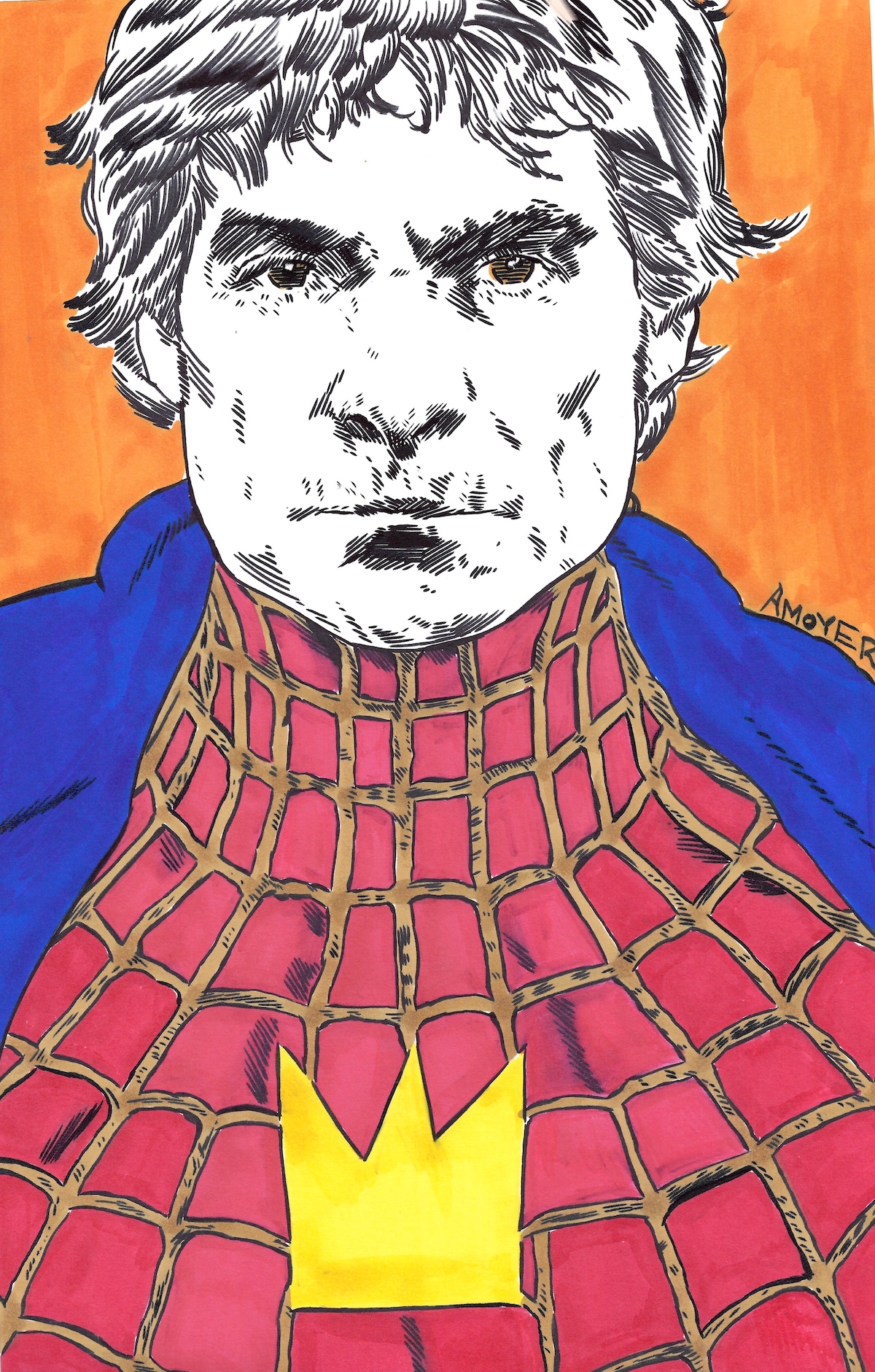
Pat Monahan: Oh, cool. Wow, that’s really good!
Thank you.
Pat Monahan: I look like more of a villain than a superhero, but I look like a superhero that got the shit kicked out of him, which is even better.
Yeah, there you go!
Pat Monahan: That’s great, man. You’re a good drawer. You’re an artist, I should say.
Thank you so much. So my question is, when you're writing a song that's sort of ‘made to form’ like that, what's the difference between writing something for an album and then writing something for a soundtrack? Or let's say you're writing something for a Hallmark movie. Is the songwriting process any different, or is it pretty similar?
Pat Monahan: It’s a lot different because if you can see something first, you just get a whole other dimension of what you could be writing about. Like looking into an actor’s eyes while they’re behaving in a certain way, you can write an entire book about it. So it becomes a little easier in a lot of ways. And like right now, we’re finishing a musical that we’ve been working on for a really long time, and this is very difficult because you’re basically trying to write the music and the words of the book at the same time. And mostly the music has to be telling more of the story than the dialogue because you need to get through this thing in an hour and 40 minutes, and that’s very difficult. But watching a movie or a scene in a movie and then writing a song for it, I find that to be the easiest of all the things because then I can take myself out of it.
Yacht Rock Review is also going to be on tour with you, and Yacht Rock has had a resurgence where people my age now are huge fans. Do you have a favorite track from that era? What would be your go-to song if you were on a yacht?
Pat Monahan: I mean, there’s hundreds, and Yacht Rock [Revue] knows all of them. I was just listening to Yacht Rock on Sirius the other day, and I heard the original [version] of ‘Yah Mo B There,’ right? And Michael McDonald’s version of that is so incredible. I would say Michael McDonald and Kenny Loggins are 50% of Yacht Rock vibes. You can claim the Eagles and other things, but those two guys sang on hundreds of tracks when that era was happening, and I love both guys. I’ve met both guys, I love both guys, and I think anything that those two are doing on Yacht Rock, I’m in. And Yacht Rock Review, I don’t think there’s a better band out there that could manage doing these songs, and they come out dressed for the part and kill.
I'm so glad to hear that! My pick is “What a Fool Believes.”
Pat Monahan: Yeah, “What a Fool Believes”! We did that song a few times, two tours ago. It’s just too hard to sing.
I mean, Michael McDonald, he makes it look and sound so easy, but what a voice.
Pat Monahan: And he’s playing piano, all those keyboard parts while he’s doing it.
It's not easy, tricky chord changes.
Pat Monahan: Oh, hard piano, yeah.
I was doing the math last night because I saw you guys on the 2011 tour with Maroon 5, and I was 12 years old.
Pat Monahan: [laughs] So was I, brother!
So you're approaching the 15th anniversary of that ‘Save Me San Francisco’ Tour, and you're 30 plus years into the band. So as you're doing the contemporary material and classic material, how does your relationship to those songs change as time goes on? And, you know, I'm sure it's still gratifying to hear everyone singing the chorus, but how does it change the further you get from the songwriting?
Pat Monahan: It’s interesting. I think we’re very lucky that people my age who came up with me and love the work we did, they shared it with their kids, (and then they bring their kids, and then the kids want their grandparents to come. And then there’s more kids.
And so we’re looking at families every night and they range from 90 to babies. And it’s just very inspiring to think that somehow we created music that was filled with hope and pain and joy and comedy that… I’ve always described Train as a romantic comedy, and I think it works. I think it’s a good thing. It comes naturally in writing that I love comedy, but life is hard. And so I can write all those things and relate to people. And I think as time goes on, I just get more proud of it.
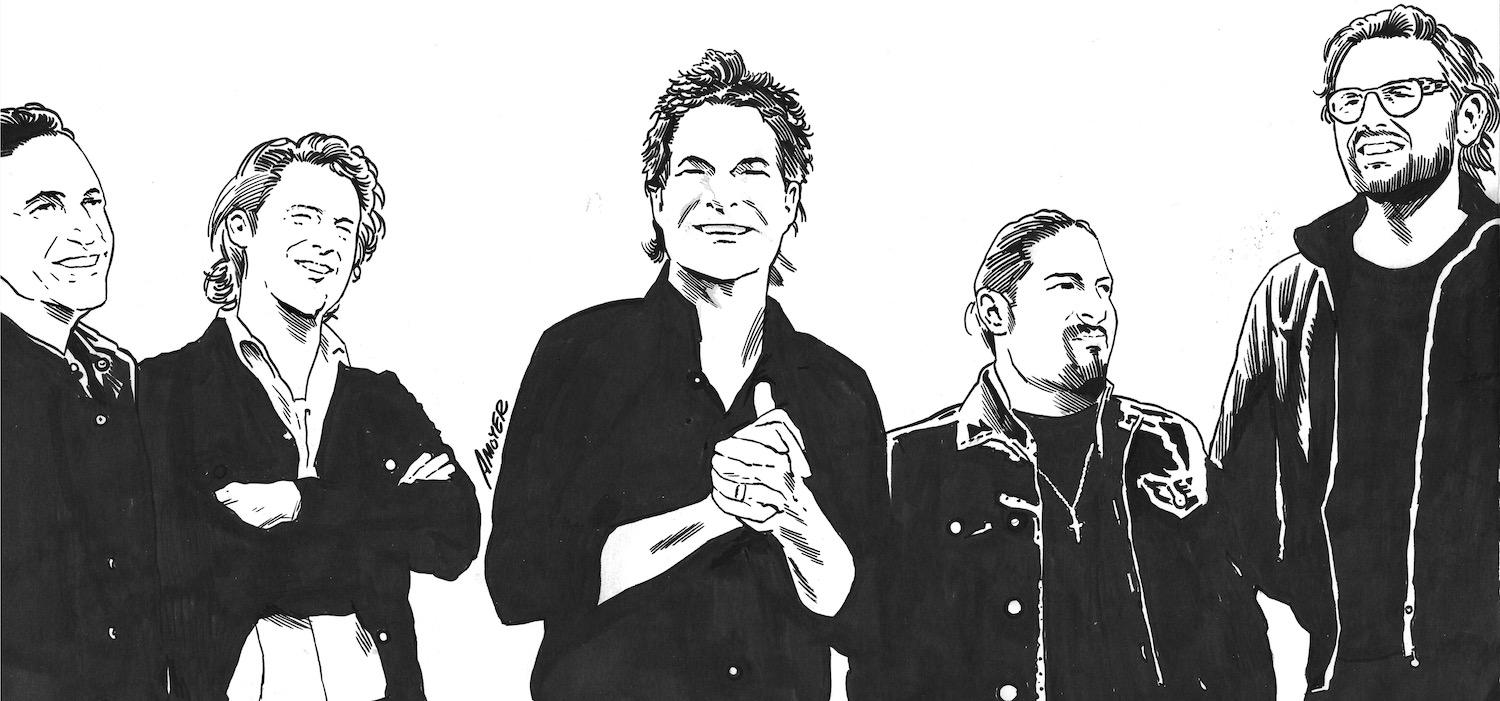
I’ve always described Train as a romantic comedy, and I think it works. I think it’s a good thing.
That's wonderful to hear. Well, thank you so much for taking the time to have this conversation!
Pat Monahan: Thank you. And thanks for letting me steal ‘Hey Soul Squire.’
Oh, absolutely. I'm glad to hear you find that funny. Best of luck with the summer tour!
Pat Monahan: Cool, hope to see you in Philadelphia. Take care!
— —
:: purchase Train tour tickets here ::
:: connect with Train here ::
Stream: “Long Yellow Dress” – Train
— — — —

Connect to Train on
Facebook, Twitter, TikTok, Instagram
Discover new music on Atwood Magazine
© Aidan Moyer
:: Stream Train ::

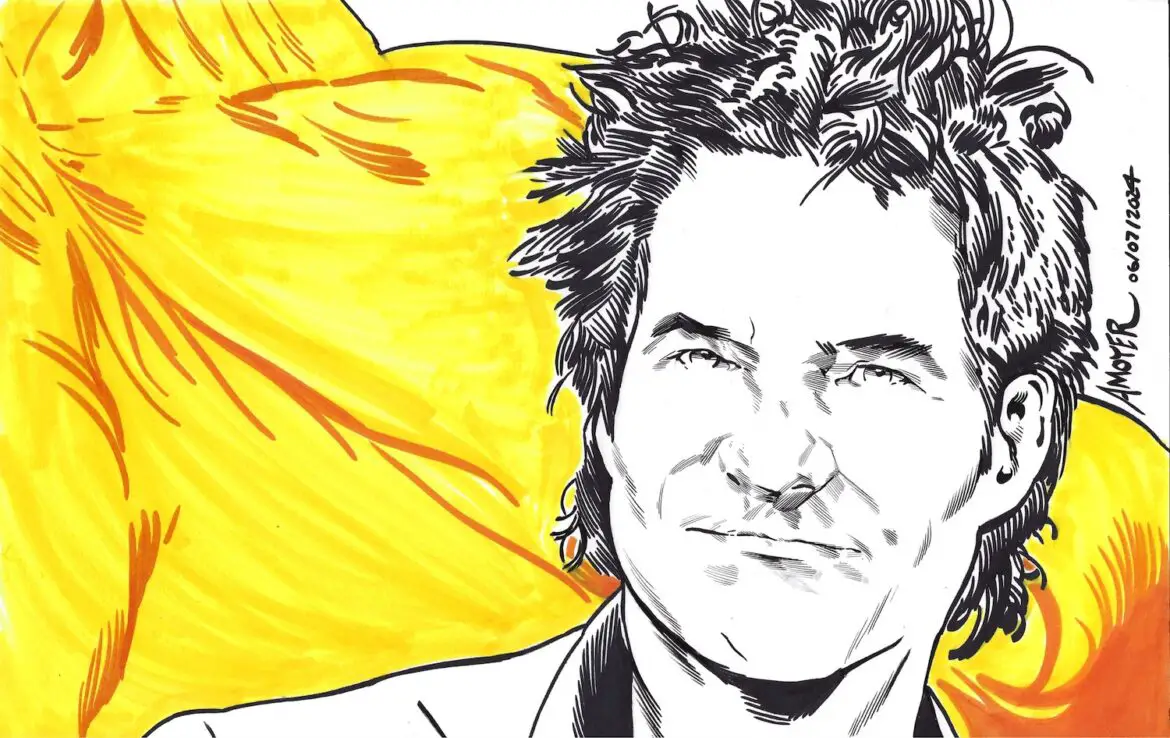
 © Aidan Moyer
© Aidan Moyer
